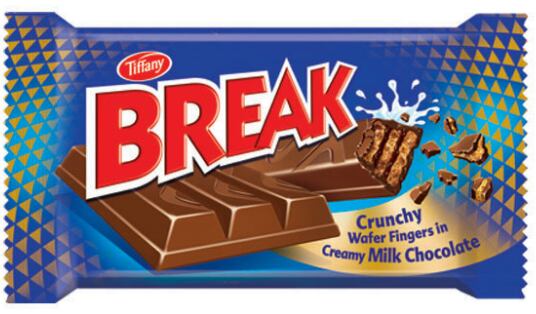In a ruling yesterday, Justice Arnold said the KitKat shape alone – without branding – had failed to gain distinctiveness.
He accepted Cadbury’s argument that there were many other similar shaped products on the market.
“There is no evidence, however, that consumers thought that those products were KitKat products,” he said.
Nestlé plans appeal; Cadbury 'pleased'
The judge refused to register the four-finger KitKat as a 3D shape and accepted Cadbury’s appeal to remove Nestlé's shape mark for cakes and pastries.
A Nestlé spokesperson said: “We believe that the shape deserves to be protected as a trade mark in the UK and are disappointed that the court did not agree on this occasion.
“We are taking the necessary steps to appeal this judgment.”
A spokesperson for Mondelēz International-owned Cadbury said: “We are pleased by this ruling by the UK High Court which is in line with our contention that the shape of the KitKat bar is not distinctive enough to be protected as a trade mark.”
South African battle

Last year in South Africa, Nestlé blocked International Foodstuffs’ (IFFCO) Tiffany Break bar from sale in the country. In January 2015, the Supreme Court said the Break bar contravened Nestlé’s South Africa trademarks on the 2-finger and 4-finger wafer shape, but IFFCO has appealed the ruling to the Constitutional Court, the country’s top adjudicator.
Case history
Nestlé applied to register the mark in 2010, but was later opposed by Cadbury UK, now a subsidiary of Mondelēz International.
In 2014, the Registrar of Trade Marks refused to grant a shape trademark for most areas applied for by Nestlé except for ‘cakes’ and ‘pastries’.
Nestlē appealed that decision to the UK high court, calling for the trademark to cover other categories.
Cadbury also appealed on grounds that the trademark for cakes and pastries too should be rejected.
When the case reached the UK high court, Justice Arnold referred the case to the Court of Justice of the European Union (CJEU) for a preliminary ruling on whether 3D shapes could be trademarked.
CJEU said in September last year it was possible to register a 3D shape trademark, but only when the shape alone has distinctiveness to the brand, in isolation of any branding.
In light of the CJEU ruling, Justice Arnold yesterday said the KiKat shape had not gained such distinctiveness.
Can only unbranded products win shape marks?
James Sweeting, senior associate in the Media, Brands & Technology team at Lewis Silkin, said companies can register shapes but it would be tough to block competitors from selling similar shaped products as Nestlé has attempted.
“The legal test established by the CJEU last year makes it extremely difficult for companies to obtain monopolies over shapes. In order to do so, they would have to promote the product as a shape in its own right, stripping it of all other branding which may tell consumers where the product originates.
Case:
Société des Produits Nestlé SA v Cadbury UK Ltd
[2016] EWHC 50 (Ch)
Case No: CH/2014/0392, CH/2013/0394
